Reading Lists
The 12 Creepiest Companies in Literature
From all-knowing tech giants to shady scientific institutes, these fictional corporations are eery (and eerily familiar)

By now it shouldn’t elicit a reaction at all, but sometimes I still feel a shiver of unsettled awe when my webpages populate with ads that are targeted at me. How does Google know that I’m interested in that? I wonder, even though I know perfectly well that the answer lies in algorithms and browsing history and the careful mining of data.
I know I’m not alone, which is why it’s not surprising that dystopian novels are seeing a resurgence of popularity. (Orwell’s 1984 became a best-seller again in January.) Who wouldn’t feel a little paranoid in the modern world? The news cycle offers weekly revelations about shady corporations, from car companies that purposely lie about their environmental safety standards to tech devices that can be used as evidence against us in court. Even the companies that are supposed to have revamped the work environment to focus on worker’s health and happiness are being exposed as toxic firms that serve up misogyny and racism along with free sparkling water.
Literature allows us the oddly satisfying experience of reading about companies that embody our worst fears, and perhaps even act as a kind of warning sign, like The Jungle for climate change or Internet privacy. Here are 12 novels that serve up the creepiest of corporations, from brain research facilities doing unauthorized surgeries to all-knowing data companies, and even a corporation so hell bent on profit that it destroys the earth as we know it.
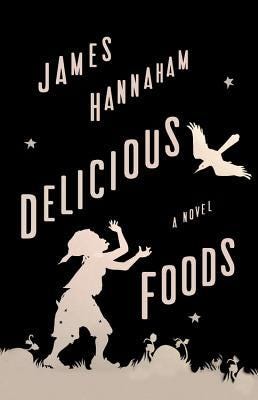
1. Delicious Foods in Delicious Foods by James Hannaham
Hannaham’s powerful second novel offers commentary on both the institution of slavery in the US and the companies that continue to practice a version of modern slavery, holding their “employees” in a vicious cycle of debt and depravity. Darlene is primed for the trap; a grief-wrought young widow who is self-medicating with drugs, she’s easily lured by an offer of work from a company called Delicious Foods. In reality, the company is the opposite of a piece of cake—Delicious Foods keeps its employees bound in virtual slavery by forcing them to preform hard labor in return for food, lodging, and drugs.
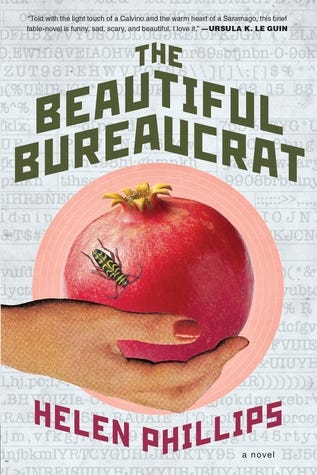
2. The Company in The Beautiful Bureaucrat by Helen Phillips
When Josephine takes a job at a generic, windowless office, tasked with entering endless strings of numbers into The Database, it all feels about as bland as bland can be. But Helen Philips takes all the mundane aspects of a workplace — the clacking of keyboards, lifeless rooms, and coworkers who pop up just when you’re slacking off— and exaggerates and tweaks them until you, and Josephine, feel a not unwarranted chill of dread.
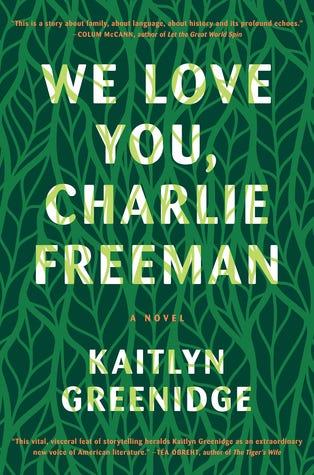
3. The Toneybee Institute for Ape Research in We Love You Charlie Freeman by Kaitlyn Greenidge
Greenidge’s awesome debut novel offers a literal, and very disturbing, take on institutional racism. The Toneybee Institute for Ape Research creeps out the Freeman family children at first encounter and it’s not hard to see why; the all-white staff puts the African-American Freeman family under constant video surveillance and treats them like specimens, though technically the subject of the study they’re participating in is the chimp they’re teaching to speak sign language.
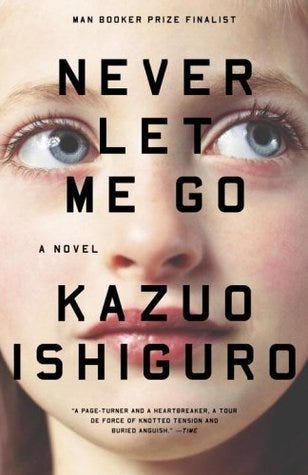
4. The Carers in Never Let Me Go by Kazuo Ishiguro
Just the name of Kathy’s job in Ishiguro’s Booker Prize-finalist sounds off-putting: she is a “carer” for “donors” who are on their way to being “complete” — i.e. dead. Ishiguro’s dystopian world is particularly bone-chilling in this regard: not only are the “donors” clones who have been raised to donate their organs in order to extend the lives of their original humans, but they are expected to care for their predecessors. This is a situation in which I would not suggest making friends at work.
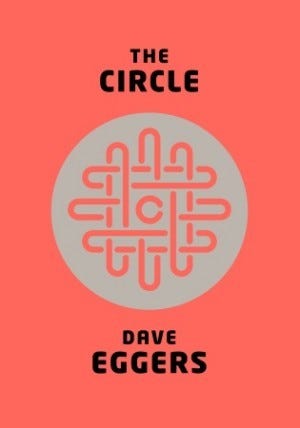
5. The Circle in The Circle by Dave Eggers
The Circle is the world’s most powerful internet company, based, where else, in California. The Circle is the not-so-subtle culmination of our worst fears about tech giants like Google and Facebook. It collects its users’ personal information — emails, bank accounts, social media, the works — and offers untold “transparency.” That’s tech speak for “we have all your information and you have no where to hide.”

6. The Sunshine Project in Purity by Jonathan Franzen
Imagine Wikileaks run by a narcissistic German on the lam in Bolivia and you have The Sunshine Project, an organization that collects and trades secrets. Despite its obviously shady credentials, the Project easily draws in a young woman named Pip. Pip’s attraction to the organization seems like Franzen’s not so subtle warning/disgust at the vulnerability of young people who are struggling with student loans and the search for “self.”
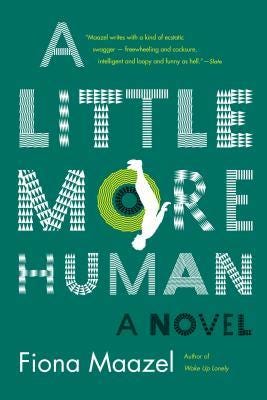
7. SCET in A Little More Human by Fiona Maazel
SCET is a family-run biotech research and rehabilitation center on Staten Island that helps Iraqi war veterans…oh, and it preforms experimental brain surgery. The extent of those experimental surgeries is part of the mystery at the heart of Maazel’s latest novel, but it’s never a good sign when you learn that the owner of the brain research center is himself is suffering from degenerative dementia and is hellbent on a cure.
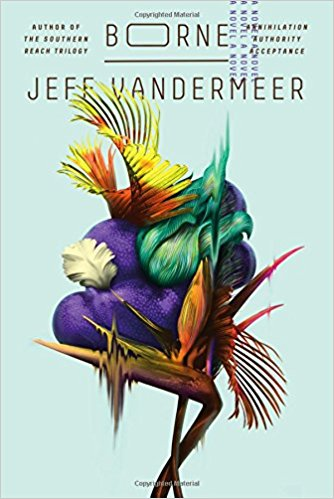
8. The Company in Borne by Jeff VanderMeer
Here is another capital C Company. This one’s actions don’t just threaten to end the world as we know it — they actually do it. The Company was a biotech firm whose sinister products, like the “Company moss,” a tool for corporate surveillance, have left the world (or what’s left of it after the climate apocalypse) a broken, scary place.
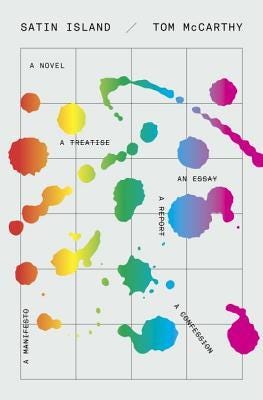
9. Unnamed London Consultancy Firm in Satin Island by Tom McCarthy
Satin Island is McCarthy’s take on big corporations and their data-focused, soulless strategies for success. A man called U is a consultant ethnographer who has been hired by a major London company to write “The Great Report,” an unspecified compendium of the age. The firm will use this report in its goal to help companies and governments, “elaborate and frame regenerative strategies,” “contextualize and nuance their services and products,” and “brand and rebrand themselves.” Like in his novel Remainder, McCarthy manages to make sterility, even vagueness, extremely unsettling.
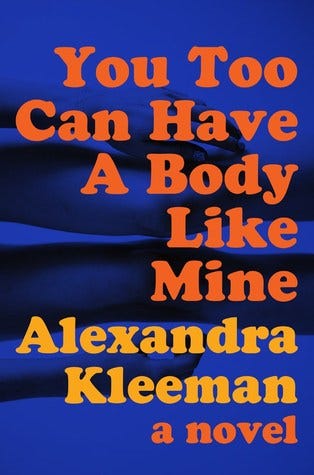
10. Kandy Kakes in You Too Can Have a Body like Mine
One of the major themes in Kleeman’s debut novel is food and the ways that corporate America gets us to buy, ingest, and regret eating it. The epitome of her criticism comes in the form of Kandy Kakes, a processed “food” made from three layers of “caramel,” “chocolate,” “Choco shrapnel,” and a “top-secret ‘Kandy Kore.’” Their mascot is Kandy Kat, a hybrid of Chester Cheetah and that squirrel from Ice Age who is forever trying, and violently failing, to get the acorn. The tagline of the one hundred percent chemically created snack is Real Stuff. Real Good. The scary part is that you wouldn’t be surprised if Hostess decided Kandy Kakes was a fabulous idea.
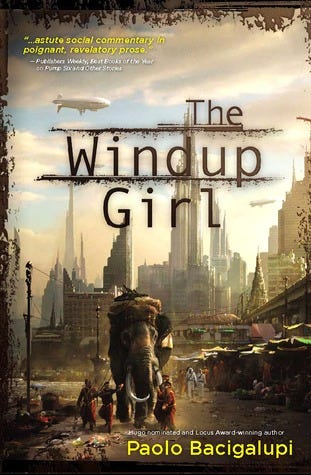
11. AgriGen in The Windup Girl by Paolo Bacigalupi
Bacigalupi’s award-winning debut novel takes place in a futuristic Thailand that has been devastated by environmental disaster. In this world, calories are king and AgriGen is one of the mega-corporations who provides them. It’s unsettling enough to envision a world where corporations are literally selling survival, but it doesn’t help that this company isn’t above bioterrorism, theft, or murder to control the market for its goods.

12. The Trading Company in The Heart of Darkness by Joseph Conrad
The trading company in Conrad’s 1899 novel appears at first to be a typical colonial enterprise, but that’s Conrad’s point: this story is about just how far the company, and colonialism, veers from any ethical standards. The tale is narrated by the Director of Companies, though it is really the story of a trader named Marlowe. As Marlow travels the Congo, he finds that the Company is a racist, violent machine which brutalizes the native populations — and his coworkers don’t bat an eye.
The Day Jobs of 9 Women Writers








